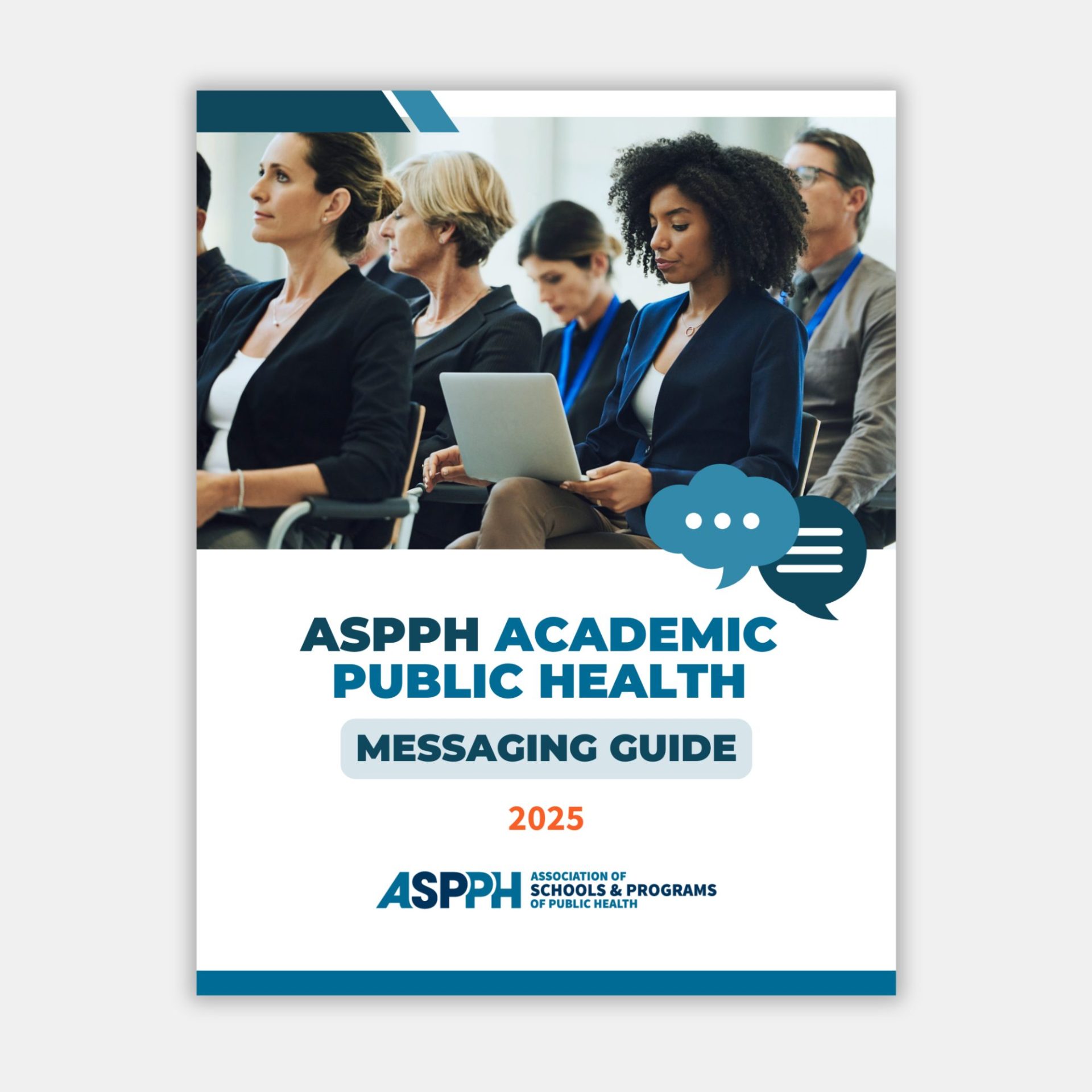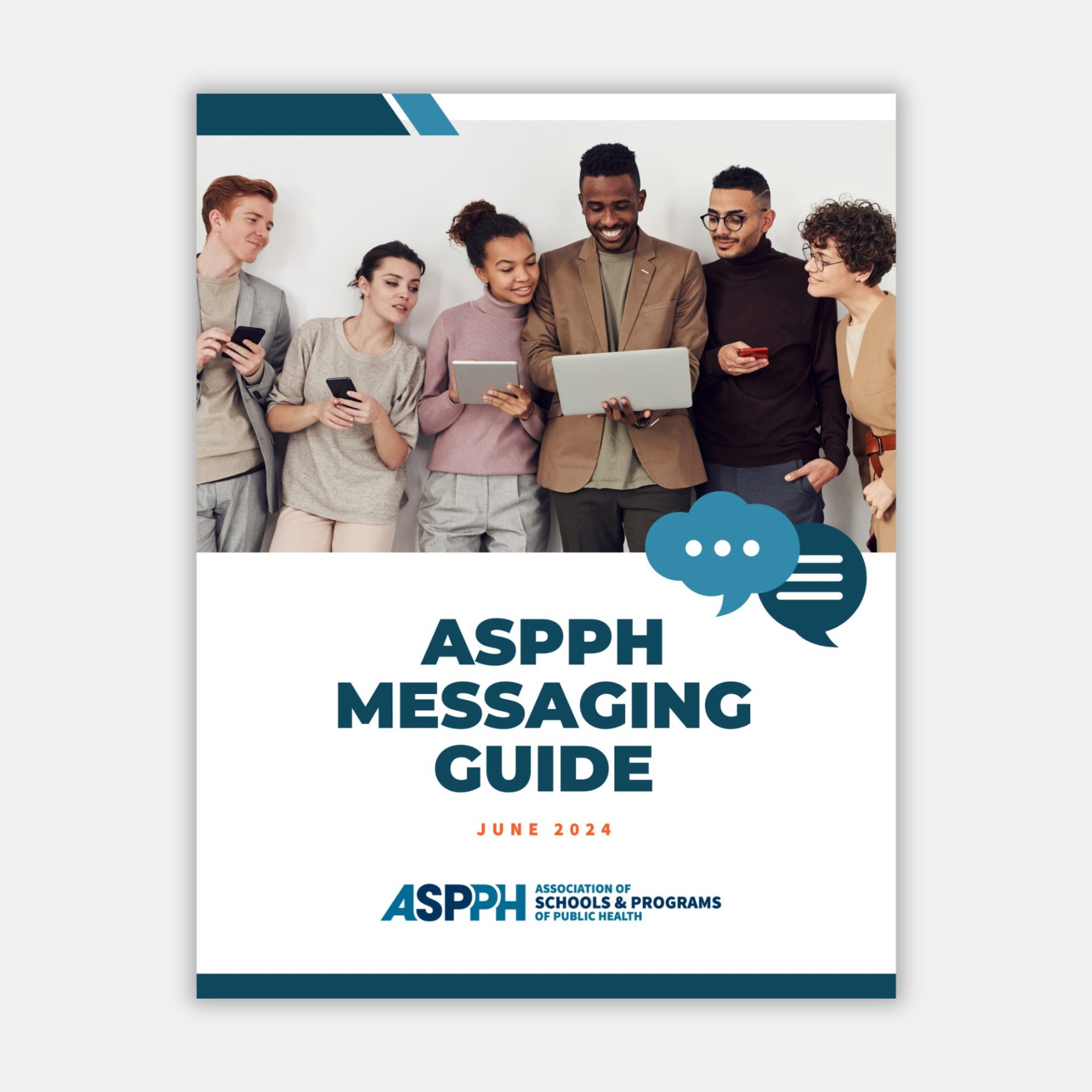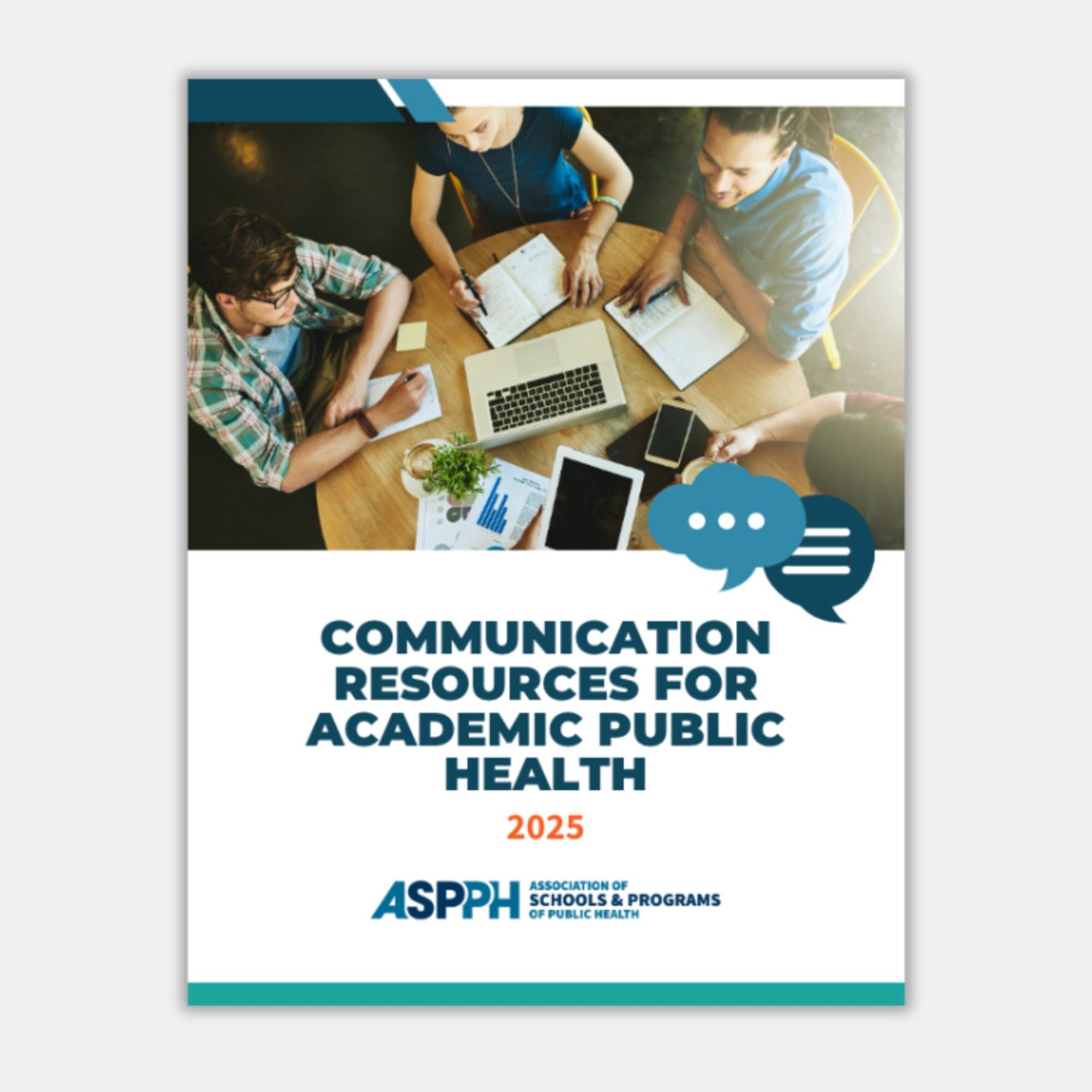
ASPPH Messaging Guide
The ASPPH Messaging Guide is a comprehensive resource designed to help ASPPH members and those in public health effectively communicate the impact and importance of their work. The guide provides powerful messaging tools, compelling examples, and evidence-based strategies to address public health challenges and priorities.



A Resource for Those Working in Public Health
The ASPPH Messaging Guide is an invaluable resource for amplifying your impact and advancing the mission of academic public health. The guide empowers ASPPH members and those in public health to effectively communicate the value and significance of their work, fostering greater understanding and support from policymakers, communities, and the public. By providing a comprehensive toolkit of messaging strategies and resources, the guide equips our members and those in public health to:
- Advocate for increased funding and legislative support for public health initiatives.
- Build trust and find common ground with skeptical audiences.
- Highlight the economic benefits and cost-savings of public health interventions.
- Emphasize the critical role of academic public health in addressing global challenges.

2025 Addendum to the ASPPH Academic Public Health Messaging Guide

ASPPH Academic Public Health Messaging Guide

Communication Resources for Academic Public Health
Why a Messaging Guide is Needed
Public health is at a critical juncture. Our field has made substantial progress in improving lives and health, yet we still face significant challenges, such as the long-term effects of COVID-19, climate change, gun violence, misinformation, and systemic racism.
To address these challenges and continue our innovative work, it is essential to communicate our efforts clearly to various audiences, including policymakers, communities, and future public health professionals. The ASPPH Messaging Guide is a comprehensive tool designed to strengthen our communication strategies and effectively highlight the crucial role of academic public health. As we encounter unprecedented challenges and opportunities, clear and consistent messaging remains vital to our mission.
Key Features of the Guide
Concise and compelling messages that highlight the critical role of academic public health in addressing global health issues and ASPPH initiatives, such as climate change, gun violence prevention, misinformation, and more.
Effective framing techniques tailored to resonate with diverse audiences, including skeptical or resistant groups, by focusing on shared values, economic benefits, and national security implications.
Compelling real-world examples and success stories that illustrate the tangible impact of academic public health initiatives, from reducing health disparities to improving disaster preparedness.
Guidance on tailoring messages to specific audiences, acknowledging personal responsibility while emphasizing the need for systemic solutions, and leveraging data and evidence to build trust.